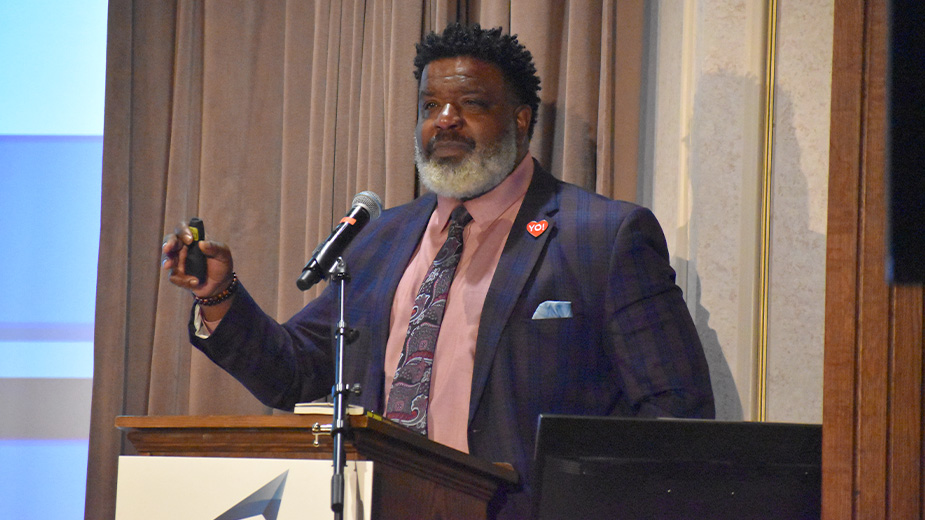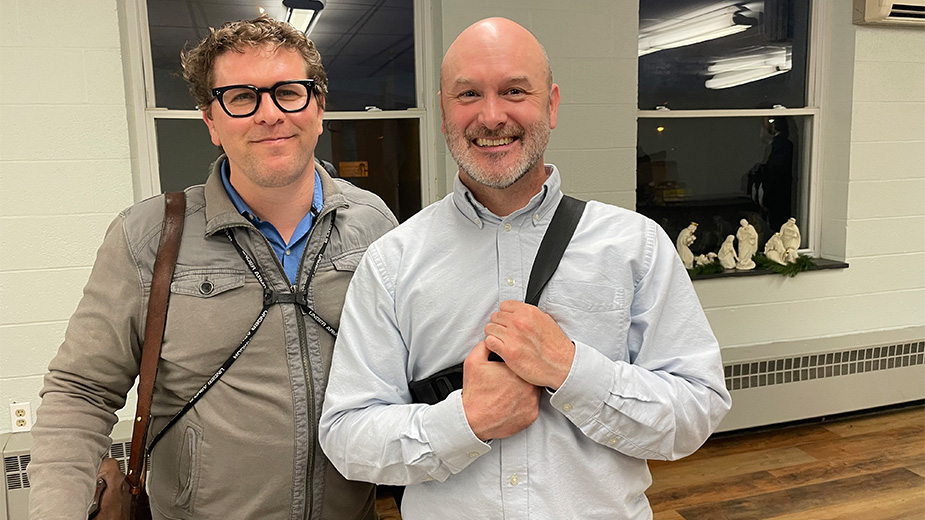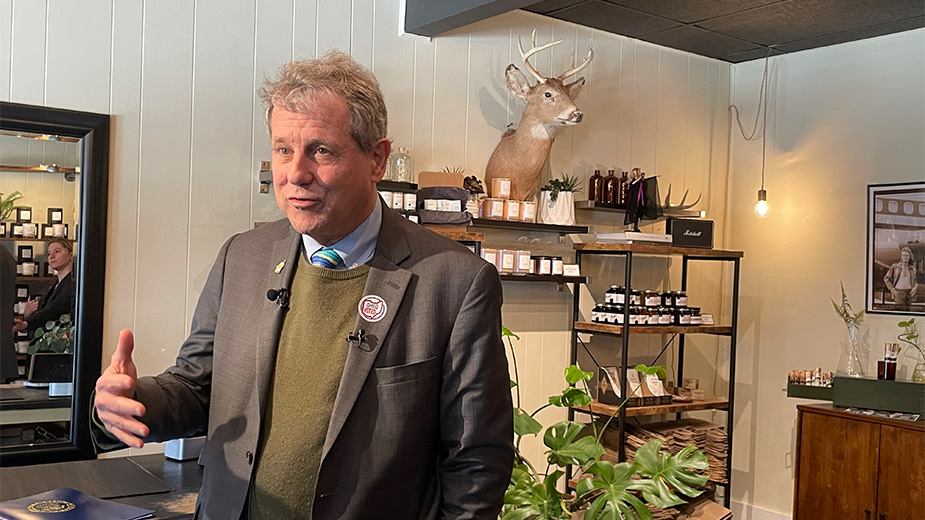Struthers Schools Work to Develop Entrepreneurs
STRUTHERS, Ohio — This city prides itself on the blue-collar work ethic generations its residents displayed decades ago at Youngstown Sheet & Tube Co., a stone’s throw from downtown. The steel mill was the anchor of the city for six decades, with generations of families working at the furnaces.
In the four decades since Black Monday, the city has attempted to rebuild its economy around small businesses and industry, holding on to its century-old work ethic. And now, well into the 21st century, the school system is working to develop the next generation of business leaders through a new entrepreneurship program.
Designed to provide students with some experience in most facets of business, the program has attracted about 80 high school students who take the course as an elective.
For Derek Cage, a Struthers senior, the program is helping him prepare for life after high school through some of the projects he’s working on now. He can’t pin down when he first became interested in owning and running his own business, but the program has certainly solidified his enthusiasm.
“I had an inner drive and was interested in business,” he says. “Early on in school, I wasn’t doing too well. I didn’t have any motivation and didn’t know where I wanted to go or what I wanted to do. I was able to find something I’m passionate about.”
The class uses Gary Schoeniger’s 2010 book Who Owns the Ice House: Eight Life Lessons From an Unlikely Entrepreneur and an online course that complements it. Students work on projects that include a weeklong financial management module where they have to buy a house, appliances, transportation and other necessities and then present their decisions to the class.
In addition to high school students, all eighth-graders work through a nine-week curriculum, discussing the financial aspects of running a business and cover topics such as franchising and running an environmentally friendly business. Among their projects are operating a fictional travel agency to develop plans for the class’ annual trip to Washington, D.C.
While it is dubbed an entrepreneurship program, the interim superintendent, Pete Pirone, says the courses are designed to help students beyond the business world.
“A lot of people think of entrepreneurship as owning your own business, but it’s about thinking outside the box for students,” he says. “We want to teach financial literacy to all of our students, whether it’s for a business or you personally. But there’s also the entrepreneurial way of thinking. No matter what career you choose, you can be an entrepreneur.”
Teaching those concepts and preparing students to think in abstract terms benefits not only them, he notes, but the communities they’re in, whether as a startup or even as full-time residents.
“Business is the foundation of any community. Working with the mayor’s office and student council and the business community, we’ve set the foundation so [Struthers] doesn’t become a ghost town and we can start businesses here,” he says. “There’s a foundation for generations to come.”
Principal Roger Day looks at entrepreneurship programs like the one at his school not only as a foundation for Struthers or the Mahoning Valley, but potentially the nation.
“We always want to be better. People beginning new businesses and thinking about innovative things helps your immediate community,” he says. “When you think of Apple and the innovations we’ve seen in our lifetime, you think about the next one. What’s the next innovative thought that shapes our culture or who we become? That’s critical and it’s why we started this.”
The school was “weak in business electives” when talks first began about the creation of such a program, he says. After internal discussions, Day and former superintendent Joseph Nohra met with Struthers native, entrepreneur and Kent State University adjunct professor Craig Zamary, who developed the curriculum. An advisory committee, made up of teachers, business leaders and local entrepreneurs, was created and already is talking about what can be improved for next year.
Among the recent topics is getting Struthers students to go head-to-head with other schools in business competitions at the state and national levels. The committee is also discussing how to get students to work alongside local businesses.
Having the entrepreneurial spirit established early on, Mayor Terry Stocker adds, is a boon to the city that’s worked to reinvigorate itself since Sheet & Tube closed in the late 1970s. Partially because of that, Struthers has become an environment open, welcoming and accessible to business creators.
“Our town is a great opportunity because we have a lot of small shops that can be built out inexpensively to hold a business,” he says. “There’s an opportunity to open something small for them to get a feel and the knowledge of operating in a community without having to spend a lot of money.”
Among those areas well-suited for startups are the downtown area and the state Route 170 corridor along the border with Youngstown and Boardman, the mayor points out.
For some in the high school program, moving into a storefront is near the bottom of their to-do lists, regardless of their career plans – or if they want to start a business at all. Regardless, Gage sees that students take the class seriously.
“Most students are there because they have that inner drive. Obviously some students are just there because it’s an elective, but there are some people who have the same drive that I have,” he says. “It isn’t competitive, but it’s mutual and supporting each other for common goals.”
What’s helped Gage the most so far is the structure provided his entrepreneurial endeavors. His projects include a lawn care company – one he didn’t pursue because of the costs of equipment – and he’s currently working to develop a home décor business.
“I didn’t really know what I was doing [from a business standpoint],” he says. “One thing the program helps students with is taking that drive and altering it into a positive way. It’s giving a structure and pushing students to go.”
After he graduates this spring, Gage is going to college. That’s not the end for his business plans or even a hiatus. He’ll work on his startup as he takes classes, he says, applying what he’s learned in high school to his college studies and business.
“It’ll be a lot of work, but I can put the work in,” he says. “In the end – and I don’t think a lot of 17-year-olds can say this – I’m thinking about retirement. I’m thinking about the future. For me, it’s about creating a foundation to jump off of.”
Pictured: Derek Gage, a senior, says the program has helped him organize his business ideas.
Copyright 2024 The Business Journal, Youngstown, Ohio.



